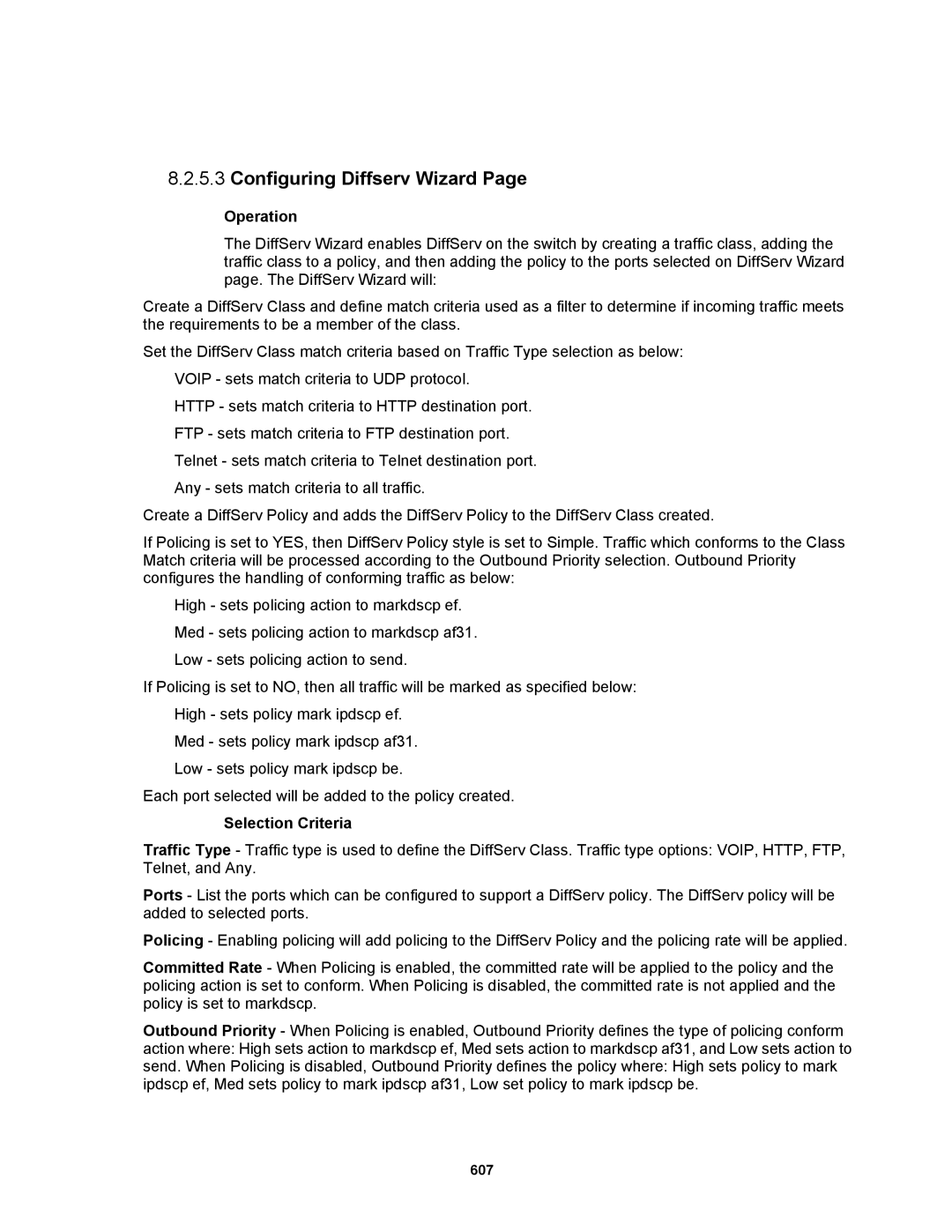8.2.5.3Configuring Diffserv Wizard Page
Operation
The DiffServ Wizard enables DiffServ on the switch by creating a traffic class, adding the traffic class to a policy, and then adding the policy to the ports selected on DiffServ Wizard page. The DiffServ Wizard will:
Create a DiffServ Class and define match criteria used as a filter to determine if incoming traffic meets the requirements to be a member of the class.
Set the DiffServ Class match criteria based on Traffic Type selection as below: VOIP - sets match criteria to UDP protocol.
HTTP - sets match criteria to HTTP destination port. FTP - sets match criteria to FTP destination port. Telnet - sets match criteria to Telnet destination port. Any - sets match criteria to all traffic.
Create a DiffServ Policy and adds the DiffServ Policy to the DiffServ Class created.
If Policing is set to YES, then DiffServ Policy style is set to Simple. Traffic which conforms to the Class Match criteria will be processed according to the Outbound Priority selection. Outbound Priority configures the handling of conforming traffic as below:
High - sets policing action to markdscp ef. Med - sets policing action to markdscp af31. Low - sets policing action to send.
If Policing is set to NO, then all traffic will be marked as specified below: High - sets policy mark ipdscp ef.
Med - sets policy mark ipdscp af31. Low - sets policy mark ipdscp be.
Each port selected will be added to the policy created.
Selection Criteria
Traffic Type - Traffic type is used to define the DiffServ Class. Traffic type options: VOIP, HTTP, FTP, Telnet, and Any.
Ports - List the ports which can be configured to support a DiffServ policy. The DiffServ policy will be added to selected ports.
Policing - Enabling policing will add policing to the DiffServ Policy and the policing rate will be applied.
Committed Rate - When Policing is enabled, the committed rate will be applied to the policy and the policing action is set to conform. When Policing is disabled, the committed rate is not applied and the policy is set to markdscp.
Outbound Priority - When Policing is enabled, Outbound Priority defines the type of policing conform action where: High sets action to markdscp ef, Med sets action to markdscp af31, and Low sets action to send. When Policing is disabled, Outbound Priority defines the policy where: High sets policy to mark ipdscp ef, Med sets policy to mark ipdscp af31, Low set policy to mark ipdscp be.
607
